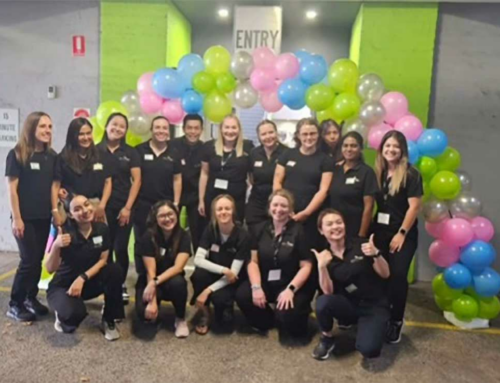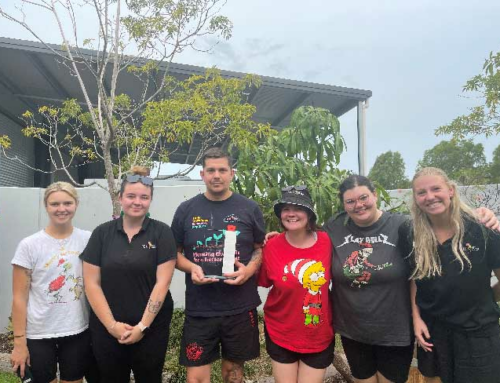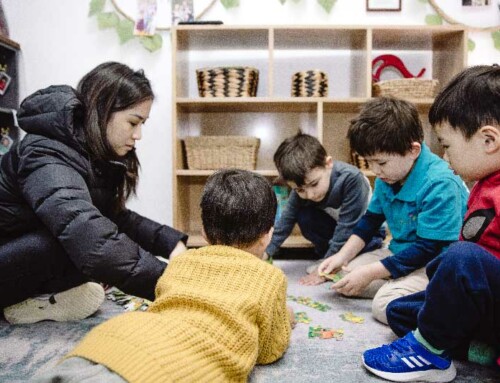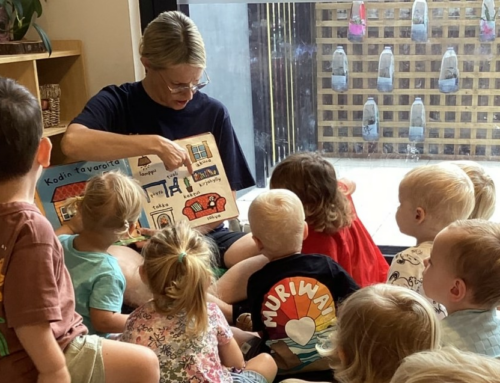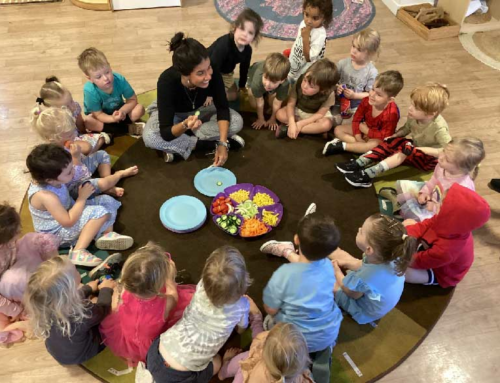We are excited to launch our new Summer Project Learning Program. In the early childhood education and care sector, our educators frequently reflect on the theories of teaching and how these inform and shape our practices to provide quality outcomes for children.
Based on inquiry learning, project learning seeks to allow children to explore their interests and inquiries through a project-based approach. It encourages children to grow their knowledge of the world around them and each other.
Running for six weeks from the end of the formal school period in each state, the Summer Project Learning Program allows educators at Petit Early Learning Journey to embed the EYLF learning outcomes to guide children’s learning through play. The program plants the seeds for inquiry learning in 2024.
Educational Leader and Early Childhood Teacher Adele D’Cunha, who teaches and cares for our 4-year-old kindergarten children at Petit ELJ Kew, shares her insights and experiences with project learning. In particular, Adele discusses:
- What is project learning?
- How is this supported in the National Quality Standards?
- Project learning and our summer program
- Project books and documentation
- Project learning examples

What is project learning?
“My understanding of project learning is allowing children to explore an idea or concept for an unrestricted amount of time,” says Adele. “School terms often limit us, but project learning allows us to explore a topic for an extended period. It comes with the freedom to put it down and pick it back up again whenever the children feel inclined.”
“The topic of focus for project learning can be anything from exploring insects to looking at complex stem concepts such as life cycles or space exploration, but the free flow of learning allows for a more accessible mode of teaching and inquiry, ensuring all children of varying abilities can participate at their own pace, whenever they feel comfortable to do so.”
How is this supported in the National Quality Standard?
“The National Quality Standard’s Quality Area 1: Educational Program and Practice emphasises the importance of a child-centred approach to teaching and learning, where the children’s ideas and interests are at the root of the learning program.”
“Project learning allows children to lead their own learning as they dictate how fast or slow they progress in their exploration, what they want to learn and how they choose to investigate it.”
“Project learning can only work with a wholly child-centred approach to learning, working with what they already know, and building on that interest to create new ideas and explore further questions and wonderings. It lets us tune into the children’s needs more authentically.”
“The project learning approach as the mode of delivering learning to the children changes our mindset as educators. It prompts us to think more about what the children want from each experience and each part of their daily routine.”
“Project learning also helps us understand how the children learn, which can help inform how we guide them through transitions. Gaining a better understanding of their learning style can ensure they feel respected and supported through tricky changes, as we are catering to their direct and specific needs.”

How will project learning apply to summer learning at Petit ELJ Kew?
“For our summer learning program, we plan to migrate our current planning and learning cycle to lean more into project learning so that we are not restricted by time or limited to one specific topic.”
“The summer learning is guided by the Early Years Learning Framework, leaning into a theme each time we introduce learning. We will explore a topic with the children at the beginning of week one of the holidays, such as ‘Nature Play and Sustainability’.”
“This year with project learning, we will hold many conversations with the children and record their answers, drawings, comments, ideas and questions. In the first week by listening to the children’s voices we will be able to discover a summer project for each of our studio programs.”
“After exploring the topic throughout the week, we will continue with this ‘mini inquiry’ project if the children’s interest persists. If the children are ready to explore a new area of interest the following week, we will move on to a new project.”
How do you use documentation for project learning?
“Aside from photographs, Storypark learning stories and documenting children’s ideas through the program books, it is important to consider that we must utilise the children’s reflections to document project learning authentically.”
“Our children’s reflections guide where the project will go next based on what they enjoyed the most and what they are left wondering.”
“We document children’s reflections through their artwork and drawings and for the older years, the most helpful way is to reflect with the children and capture quotes from group discussions with the children about how they interacted with the project learning.”
“Without the children’s perspectives, it becomes more challenging to discover what the children are getting out of the learning. By inviting the children to reflect, we can learn what they enjoy, what they hope to learn next and whether they are still interested and engaged in the content. It helps us to gauge when a project has run its course.”

Project learning examples and how they support children’s agency
Bird project learning example
“Our Burrows Lane studio children (16 months to 24 months) did a project about birds in July and how they interact with the world around them. They explored making different types of nests, including an art project where they collected blue items for the Satin Bower Bird’s nest.”
“Their inquiry led them to create a bird feeder in their outdoor learning space. The children enjoyed filling their bird feeder station every morning with fresh birdseed, exploring bird sounds, looking at the plumage of different birds and creating nests in their free play and construction space and more structured, planned learning experiences.”
Space project learning example
“Our Treasure Cove studio (4-year-olds kindergarten) had a space project that ran from the end of April and persisted throughout the rest of the year due to the children’s continuing interest.”
“They explored the planets, the moon, the sky and the weather. They learned about solids, liquids and gases as they explored the different planets. They went out and explored the weather on our rooftop playground when it rained and learned about the phases of the moon, sunsets and sunrises.”
“The children enjoyed this project learning experience by posing a question at the start of each day to guide the wonderings and discussions of the topic. Questions included: ‘What lies beyond our planet, Earth?’, ‘What is gravity?’, ‘What is a gas, and why can’t I see it?’, ‘What are stars?’ and many more.”

Be inspired to teach and learn with Petit Early Learning Journey
As part of a community of learners, our teaching teams engage with contemporary approaches to pedagogy. Our educators participate in collaborative conversations with each other, the children and their families to discover more about each child as part of an inclusive approach to learning.
At Petit ELJ, an inspiring leadership team and Support Office shares our centres’ commitment to collective and individual professional development. They support our teams who are dedicated to providing high quality play and learning experiences.
Are you ready to join a team of like-minded individuals who see teaching and caring for our youngest children as a calling?
